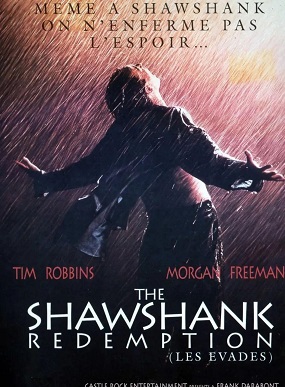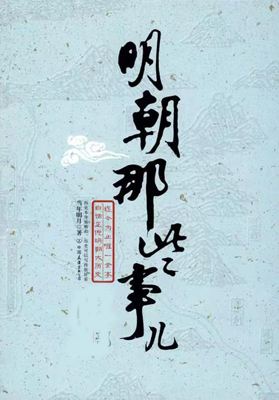Monasticism, such as it existed in Spain, and such as it still exists in Thibet, is a sort of phthisis for civilization. It stops life short. It simply depopulates. Claustration, castration. It has been the scourge of Europe. Add to this the violence so often done to the conscience, the forced vocations, feudalism bolstered up by the cloister, the right of the first-born pouring the excess of the family into monasticism, the ferocities of which we have just spoken, the in pace, the closed mouths, the walled-up brains, so many unfortunate minds placed in the dungeon of eternal vows, the taking of the habit, the interment of living souls. Add individual tortures to national degradations, and, whoever you may be, you will shudder before the frock and the veil,--those two winding-sheets of human devising. Nevertheless, at certain points and in certain places, in spite of philosophy, in spite of progress, the spirit of the cloister persists in the midst of the nineteenth century, and a singular ascetic recrudescence is, at this moment, astonishing the civilized world. The obstinacy of antiquated institutions in perpetuating themselves resembles the stubbornness of the rancid perfume which should claim our hair, the pretensions of the spoiled fish which should persist in being eaten, the persecution of the child's garment which should insist on clothing the man, the tenderness of corpses which should return to embrace the living.
"Ingrates!" says the garment, "I protected you in inclement weather. Why will you have nothing to do with me?" "I have just come from the deep sea," says the fish. "I have been a rose," says the perfume. "I have loved you," says the corpse. "I have civilized you," says the convent.
To this there is but one reply: "In former days."
To dream of the indefinite prolongation of defunct things, and of the government of men by embalming, to restore dogmas in a bad condition, to regild shrines, to patch up cloisters, to rebless reliquaries, to refurnish superstitions, to revictual fanaticisms, to put new handles on holy water brushes and militarism, to reconstitute monasticism and militarism, to believe in the salvation of society by the multiplication of parasites, to force the past on the present,-- this seems strange. Still, there are theorists who hold such theories. These theorists, who are in other respects people of intelligence, have a very simple process; they apply to the past a glazing which they call social order, divine right, morality, family, the respect of elders, antique authority, sacred tradition, legitimacy, religion; and they go about shouting, "Look! take this, honest people." This logic was known to the ancients. The soothsayers practise it. They rubbed a black heifer over with chalk, and said, "She is white, Bos cretatus."
As for us, we respect the past here and there, and we spare it, above all, provided that it consents to be dead. If it insists on being alive, we attack it, and we try to kill it.
Superstitions, bigotries, affected devotion, prejudices, those forms all forms as they are, are tenacious of life; they have teeth and nails in their smoke, and they must be clasped close, body to body, and war must be made on them, and that without truce; for it is one of the fatalities of humanity to be condemned to eternal combat with phantoms. It is difficult to seize darkness by the throat, and to hurl it to the earth.
A convent in France, in the broad daylight of the nineteenth century, is a college of owls facing the light. A cloister, caught in the very act of asceticism, in the very heart of the city of '89 and of 1830 and of 1848, Rome blossoming out in Paris, is an anachronism. In ordinary times, in order to dissolve an anachronism and to cause it to vanish, one has only to make it spell out the date. But we are not in ordinary times.
Let us fight.
Let us fight, but let us make a distinction. The peculiar property of truth is never to commit excesses. What need has it of exaggeration? There is that which it is necessary to destroy, and there is that which it is simply necessary to elucidate and examine. What a force is kindly and serious examination! Let us not apply a flame where only a light is required.
So, given the nineteenth century, we are opposed, as a general proposition, and among all peoples, in Asia as well as in Europe, in India as well as in Turkey, to ascetic claustration. Whoever says cloister, says marsh. Their putrescence is evident, their stagnation is unhealthy, their fermentation infects people with fever, and etiolates them; their multiplication becomes a plague of Egypt. We cannot think without affright of those lands where fakirs, bonzes, santons, Greek monks, marabouts, talapoins, and dervishes multiply even like swarms of vermin.
This said, the religious question remains. This question has certain mysterious, almost formidable sides; may we be permitted to look at it fixedly.
象存在于西班牙和西藏那样的僧侣制度,对文化来说,那是一种痨病。它干脆扼杀生命。简单地说,它削减人口。进修院,等于受宫刑。那已在欧洲成了灾害。此外,还得添上经常加在信仰上的粗暴手段,言不由衷的志愿,以修院为支柱的封建势力,使人口过多家庭的子女出家的宗子制,我们刚才谈过的那些横蛮作风棗“地下室”,闭住的嘴,封锁的头脑,多少终身在地牢里受折磨的智慧,服装的改变,灵魂的活埋。除了民族的堕落以外,还得加上个人所受的苦难,无论你是谁,你在僧衣和面纱棗人类发明的两种装殓死人的服饰棗面前,你总会不寒而栗。
可是,在某些角落和某些地方,出家修道的风气竟无视哲学,无视进步,继续盛行在十九世纪光天化日之下,更奇怪的是苦修习气目前竟有再接再厉的趋势,使文明的世界为之震惊。一些过了时的团体还想永远存在下去,那种倔强的想法,就象要人把哈喇了的头油往头发上抹的那种固执,把发臭的鱼吃到肚里的那种妄想,要大人穿孩子衣服的那种蛮劲,象回到家的僵尸要和活人捆抱的那种慈爱。
衣服说:“你这忘恩负义的人!我在风雨中保护过你。现在你为什么就不要我了呢?”鱼说:“我出身于大海。”头油说:“我是从玫瑰花里来的。”僵尸说:“我爱过你们。”修院说:“我教养过你们。”
对那一切,我们只有一个回答:那是过去的事。
梦想死亡的东西无尽期地存在下去,并采用以香料防止尸体腐烂的方法来管理人群,修整腐朽的教条,在法宝箱上重行涂上金漆,把修院修缮一新,重行净化圣器匣,补缀迷信上面的破绽,鼓动信仰狂的劲头,替圣水瓶和马刀重行装柄,重行建立僧侣制度和军事制度,坚信社会的幸福系于寄生虫的繁殖,把过去强加于现在,那一切,这好象很奇怪。可是确有支持那些理论的理论家。那些理论家,而且还都是些有才智的人,他们有一套极简单的办法,他们替过去涂上一层色彩,这就是他们所谓的社会秩序、神权、道德、家庭、敬老、古代法度、神圣传统、合法地位、宗教,于是逢人便喊:“瞧啊!接受这些东西吧,诚实的人们。”那种逻辑是古人早知道了的。罗马的祭司们便能运用那种逻辑。他们替一头小黑牛抹上石膏粉,便说:
“你已经白了。”
至于我们,我们处处都心存敬意,也随时随地避免和过去发生接触,只要过去肯承认它是死了。假使它要表示它还活着,我们便打它,并且要把它打死。
迷信、过分虔诚、口信心不信、成见,那些魑魅魍魉,尽管全是鬼物,却有顽强的生命力,它们的鬼影全有爪有牙,必须和它们肉搏,和它们战斗,不停地和它们战斗,因为和鬼魅进行永久性的斗争是人类必然的听天由命的思想之一。要扼住鬼影的咽喉,把它制伏在地上,那是不容易的事。
法国的修院,在十九世纪太阳当顶时,是些阳光下枭鸟的窝。修院在一七八九、一八三○和一八四八年革命发祥地的中心鼓吹出家修行,让罗马的幽灵横行在巴黎,那是种违反时代的现象。在正常的年代,如果要制止一种过时的事物,使它消亡,我们只须让它念念公元年代的数字便可以了。但是我们现在绝不是在正常的年代。
我们必须斗争。
我们必须斗争,也必须有所区别。真理的要旨是从不过分。真理还需要矫枉过正吗?有些东西是必须毁灭的,有些东西却只需要拿到阳光下看清就是了。严肃而与人为善的检查,那是种多么强的力量!阳光充足的地方一点不需要我们点起火炬。
因此,现在既是十九世纪,那么,无论是在亚洲或欧洲,无论是在印度或土耳其,一般说,我们都反对那种出家修行的制度。修院等于污池。那些地方的腐臭是明显的,淤滞是有害的,发酵作用能使里面的生物得热病,并促使衰亡。它们的增长成了埃及的祸根,我们想到那些国家里的托钵僧、比丘、苦行僧、圣巴西勒会修士、隐修士、和尚、行脚僧都在蠕蠕攒动,如蚁如蛆,不禁毛骨悚然。
说了那些后宗教问题仍然存在。这问题在某些方面是神秘的,也几乎是骇人的,希望能让我们细心观察一下。






